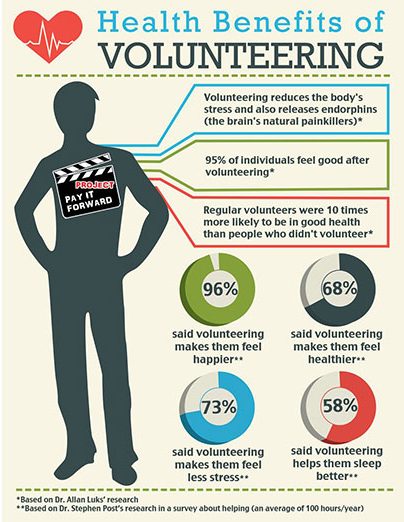I GREW up in a family that instilled selflessness and service within me, ever since I was a little girl. As such, at just the age of 16, I started to volunteer my time with organisations and agencies. I did this because I was willing and able to serve. Instead of idling, I used my time and energy towards executing community and developmental projects while volunteering for positions and roles in various organisations. The experiences were truly beneficial because they helped to shape me into the young woman I am today, but there’s a downside to volunteering that is hardly talked about. Volunteers can experience severe burnout from overworking. I don’t want this to take away from the positivity volunteering brings, but it makes no sense to have a country of volunteers who try to take care of everybody else except themselves. What good will that do?

Personally, that warm and tingly feeling you get after seeing how your efforts and work directly influenced the life of someone else is the most rewarding ever. Other volunteers will have their personal reasons for serving and giving back and of course, I hope you’re volunteering for all the right reasons. In the end, volunteers essentially give their service, their time and their energy towards a positive cause. Volunteering is needed in this developing country of ours, there’s no denying that. Nonetheless, it’s time for us to be honest and open with potential volunteers. I wish someone had enlightened me sooner. It wouldn’t have deterred me from volunteering, but I would’ve simply been more prepared for the experiences I’m about to share with you all.
As a teenager, I believed I had the ability and potential to change the world. Not much has changed from then to now, but back then my ideals were more broad and generic. I wanted my voice and my vision to be heard and so I joined established groups and organisations to get that done. I met some of the most stubborn, unaccountable, lazy, bigoted people you can find in the high chairs of these groups. Back then, I believed it was my job to “fix” the order of things, including how these “grown folk” behaved. It was painful to know that the livelihoods of Guyana’s people are in the hands of such leaders. The more I grew, the more I understood that it was not my place to fix adults. I also understood that I was fighting a system that was “broken” for years upon years in this country. People got comfortable with how things are in social service delivery and welfare and I made them uncomfortable with my views and positions on certain issues. I also endured the distastefulness of leaders being unappreciative towards volunteers and their efforts. Many did not value the work I’ve been doing. I wasn’t seeking validation but it’s demotivating to work in environments that don’t reinforce your good work. This is just the tip of the iceberg, because I know many other colleagues who are pursuing similar paths and they all said the same thing—“we are burned out.”
Eventually, all of this took a toll on my mental health and even my body. The hardest word to say as a volunteer is, “no.” Your head starts to explode with doubts and guilt about what would happen to the persons you serve if you pass on a task or event. Truth is, it’s better to refuse to do something because you’re not mentally or physically able to, rather than to do it when you’re unwell, because you might do more harm than good. If you’re interested in becoming a volunteer, remember that you are also a part of the very society you’re trying to heal. As such, when you’re busy being kind and helping others don’t forget to include yourself as well. You can’t give much from a half-filled cup, but if your cup is overflowing, there will be much to give. So, invest in yourself and take care of your health before investing your time into other people. It will reflect tremendously on the quality of the work you accomplish.


.jpg)











